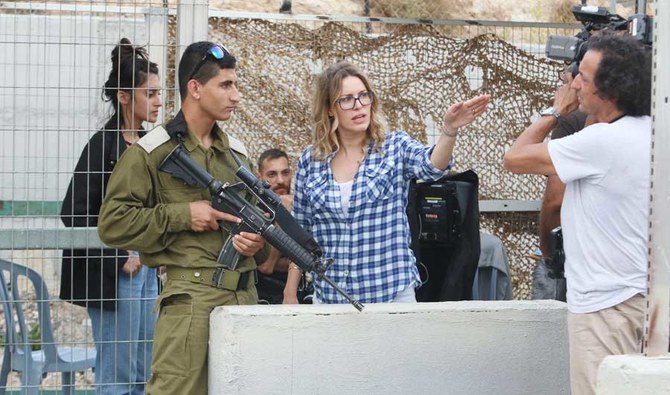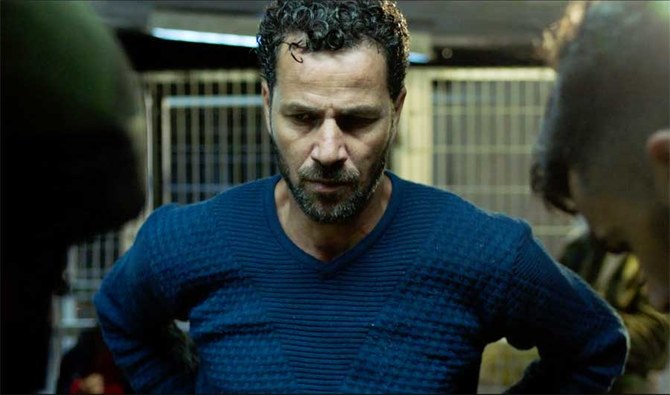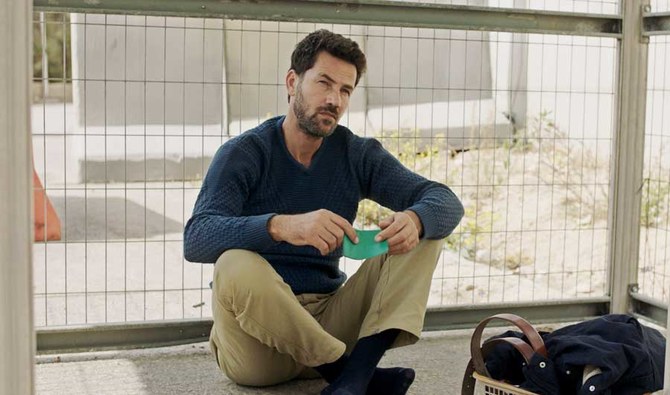DUBAI: Farah Nabulsi never imagined she could direct a film. Even after leaving behind a successful career in investment banking to tell stories of injustices in Palestine, after years of writing and producing short films, a persistent, doubting voice in her head told her, again and again, that there was no way she could become a director.
Stepping behind the camera was, in her mind, a step too far. How wrong she was. She overcame her doubts and last week received an honor few filmmakers achieve — her directorial debut, “The Present,” was shortlisted for an Academy Award.
“I truly believe that everything you ever want is on the other side of fear,” Nabulsi told Arab News. “Most people don’t do the things in life they would like to be doing because of fear. I say OK, fine, feel that fear — but go ahead anyway.”
Nabulsi was born and raised in London to a Palestinian mother and an Egyptian-Palestinian father. “The Present” is her third short film and it is grander in scope and ambition than either of her previous efforts. The 25-minute movie chronicles a day in the life of a man and his daughter as they embark on what should be a simple outing to buy the girl’s mother a gift. However it quickly turns into an odyssey as they pass through checkpoints and security stops, an experience that becomes humiliating at best — and possibly deadly.
Nabulsi’s previous films, which she wrote and produced, were “Today They Took My Son” (2016) and “Oceans of Injustice” (2017). She collaborated on them with directors Pierre Dawalibi and Bruno de Champris respectively. However the stories they were telling were hers and, as much as she respected the work of the directors and benefited from the collaborations, she said that what held her back from directing them herself was was not lack of ability, but self doubt.
“To be a producer, the barriers to entry in my mind were very low,” she said. “You can just decide ‘I’m going to produce a film.’
“Whether you’re a good producer or not, that’s another conversation. But to choose to be a producer, I didn’t think I needed to know anything particularly technical. Whereas to be a director, in my mind, there was a sort of perception or a stigma: I thought no, you have to go to film school or something.”
Others pushed Nabulsi to direct, continually asking her why, when she was so hands-on with every aspect of the production of her films, was she avoiding the director’s chair? Impostor syndrome set an invisible barrier she could not overcome, until the idea for “The Present” began to take form in her mind and she realized she could visualize every shot.
She even had an actor in mind to star: Saleh Bakri, the brooding, near-method actor who starred in global sleeper hit “The Band’s Visit” (2007), written and directed by Eran Kolirin, and the acclaimed Palestinian family drama “Wajib” (2017), written and directed by Annemarie Jacir.
“I had to make sure I had the best actor for the job,” said Nabulsi. “They say you can have a great story and some really bad acting, or you can have some great acting and a really bad story. But if you have a powerful story and some fantastic acting, you might make it to the Oscars.”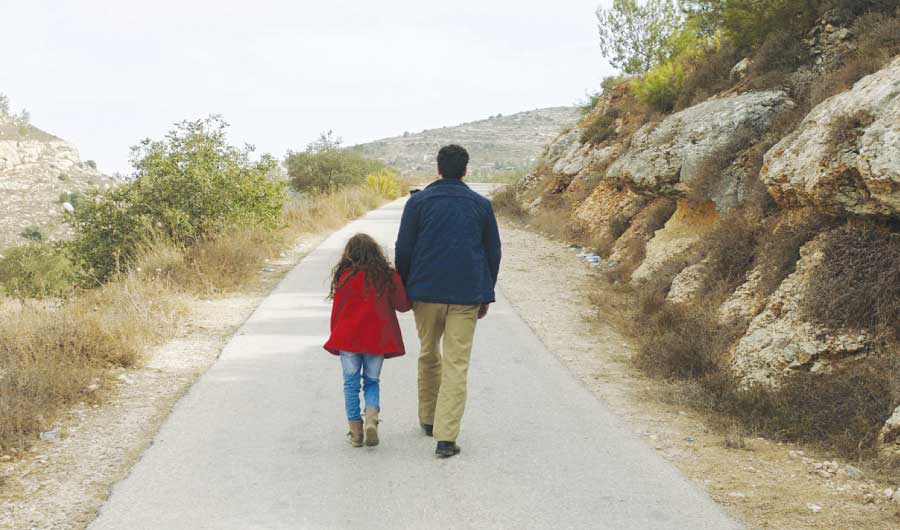
Nabulsi needed Bakri not only to hold the production together with his bountiful charisma but also to imbue every frame with humanity, as ultimately this is the aim of the film. One of the characteristics of film in particular as an art form, and the reason Nabulsi chose the medium, is its ability to convey a deep sense of the human condition. A good movie pulls viewers into the struggles the characters endure deep within themselves with every humiliation or indiscretion. As a first-time director, she knew that accomplishing this depth of characterization requires a team effort, so attracting an actor of Bakri’s caliber was a vital step.
“He’s a very seasoned actor,” she said. “He took a risk on me — and that was based on my intentions. He liked the story and he liked the simplicity of the story.
“From a directing point of view, I had to be very careful that when I did bring anything to him; it had to add value because otherwise I’m interfering in his process. Otherwise, I would leave it with him and then if I felt something was not quite what the character would do, we would have our conversation and vice versa.”
Sometimes these conversations about character would continue late into the night, after which Bakri often retreated into silence until the cameras rolled, with Nabulsi unsure of where his process had taken him after their discussions.
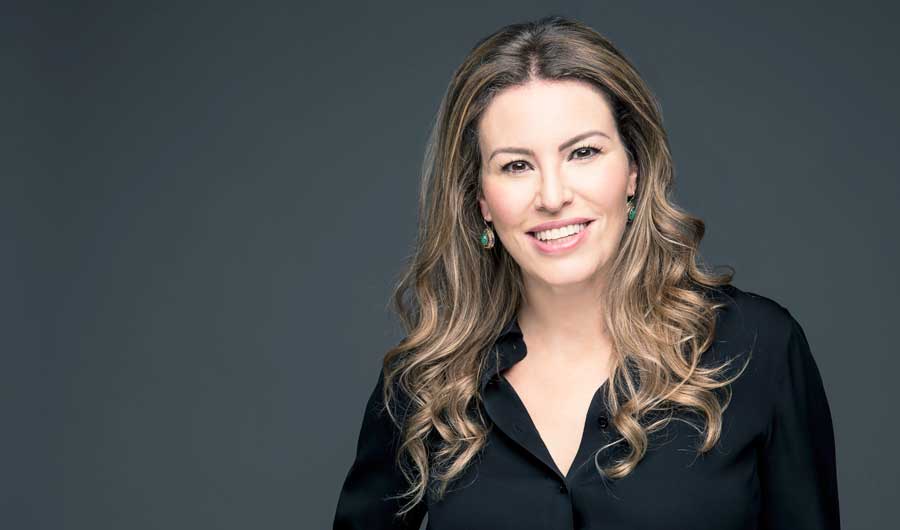
“Then when he’s doing the scene I would be watching him and I would know that he’d taken in the conversation we’ve had, and he would do it beautifully,” she said. “He captured the sort of dignity and the depth and the frustration and the humanity of this man so well.”
Unlike Jordanian director Ameen Nayfeh’s “200 Meters” (2020) — another excellent film centered on a Palestinian father plagued by border crossings, which starred previous Bakri collaborator Ali Suliman — “The Present” is not only the story of a man. It is the story of a father and his daughter, and her role is integral to the film’s power and success.
Throughout the film Yusuf (Saleh’s character) is watched closely by his daughter, Yasmine (Mariam Kanj). At one point, movingly, she tells him that their ordeal is not his fault. Ultimately it is Yasmine who takes matters into her own hands as her father reaches breaking point.
“I had various versions of what could happen but I certainly wanted to lend hope, and something unexpected,” said Nabulsi. “I wanted to offer a suggestion that maybe it’s the youth, and maybe it’s female youth, that can offer us a more hopeful future. They are coming out smarter and stronger, after all.”
The next challenge for Nabulsi is her first feature film, a dramatic, character-driven thriller inspired by real events, which is being co-produced by Philistine Films in Palestine and Cocoon Films in the UK. It will reunite her with Bakri, who will star as the film’s protagonist, and she is working with casting director Leo Davies, who helped to select Helen Mirren for her Oscar-winning title role in “The Queen” (2006), to find the perfect actors to portray three Western characters. Shooting is scheduled to begin by the end of this year.
Before then, Nabulsi will experience the excitement of her first major awards season as a contender, as she waits to find out whether “The Present” makes it onto the final list of Oscar nominees for Best Live Action Short. It is also on the long list for a BAFTA in the British Short Film category.
“I’m not sitting here with delusions of grandeur or anything like that,” she said. “It’s just the appreciation of what this can do — allowing me to continue my work and continue to tell stories to raise the global social conscience.
“Powerful, evocative, world-standard, cinematic, beautiful storytelling — that is the kind of filmmaking I want to be doing.”


